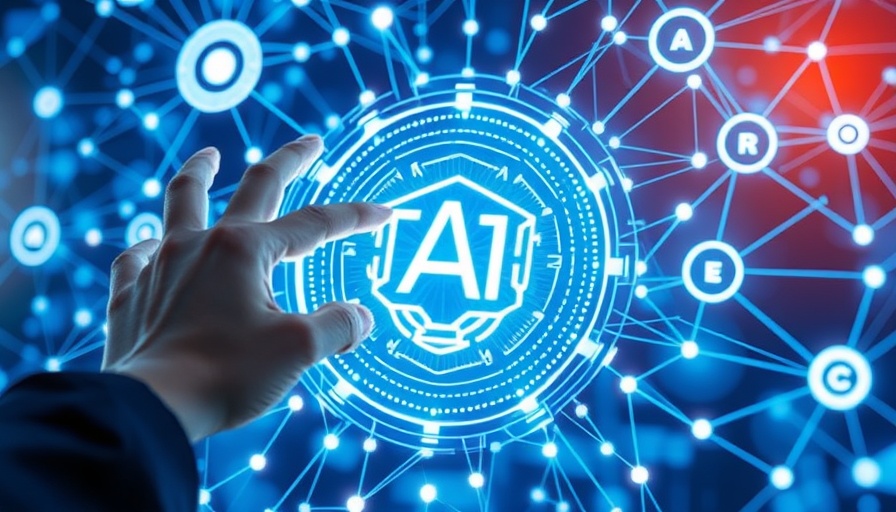
The Rise of AI Agents: What You Need to Know
Artificial Intelligence is evolving at an unprecedented pace. Unlike the chatbots we’re familiar with, AI Agents are poised to take on complex tasks without much human intervention, fundamentally changing how we work. As they become integrated into everyday job tasks, it's crucial to understand their implications on employment and productivity.
How AI Agents Are Changing the Workforce
Traditional AI has made significant strides, enhancing processes like customer service and data handling. However, AI Agents represent the next level. These agents utilize large-language model technology to automate not just simple tasks but complex workflows. By interfacing with existing systems, they can effortlessly execute functions such as processing returns or even creating entire websites.
As tech giants like Microsoft, Amazon, and OpenAI invest heavily in AI Agent technologies, the most significant change is the reduction of the manual effort in jobs. Employees can delegate time-consuming tasks to these agents, focusing instead on higher-level thinking and strategy. This shift could lead to a landscape where human workers collaborate more with AI, enhancing overall productivity.
A New Level of Automation
One of the defining features of AI Agents is their ability to self-create and deploy tools. If faced with tasks requiring specific tools, they can design their own software solutions. This groundbreaking capability presents the potential for increasing efficiency and minimizing downtime in various industries.
The positions most prone to automation are those that involve repetitive or standard tasks. As routine tasks become automated, there may be fears of job losses. Yet, others speculate that AI could free employees from mundane jobs, allowing them to engage in more creative and strategic roles. As AI agents take care of data entry, routine inquiries, and security measures, workers can focus on more intellectually stimulating responsibilities.
Preparing for the Future: Skills to Cultivate
To thrive in a world where AI Agents handle many tasks, individuals must enhance their skill sets to adapt. Here are significant skills that will not only be relevant but crucial:
- Data Literacy: Understanding data analysis and interpretation will be invaluable as decision-making relies increasingly on data-driven insights.
- Creativity and Problem Solving: As AI handles routine tasks, human skills focused on innovation and creative thinking will become essential.
- Tech Proficiency: Familiarity with AI tools and concepts will allow individuals to effectively collaborate with AI Agents.
Evaluating Risks: What Challenges Lie Ahead?
Although AI Agents promise many benefits, there are several risks and challenges to consider. Privacy concerns, ethical implications regarding job displacement, and the need for regulatory oversight become prominent as AI is utilized more extensively in business settings.
Moreover, the rapid pace of these changes could exacerbate disparities in the workforce. Those without access to technology training may find themselves at a disadvantage in an increasingly automated landscape. It raises critical questions about the future of work that must be addressed proactively.
Final Thoughts: Embracing Change
AI Agents are not merely a trend; they are here to stay. Their ability to automate complex tasks opens the door to new possibilities for workplace efficiency and innovation. However, individuals and businesses must stay informed about these advancements, ready to cultivate the necessary skills to harness their full potential. As we stand on the brink of this new era in AI, the conversation about its impact will undoubtedly continue.
Stay engaged with the evolving trends in AI and explore how you can adapt your career to thrive in this exciting future.
 Add Row
Add Row  Add
Add 




 Add Row
Add Row  Add
Add 

Write A Comment